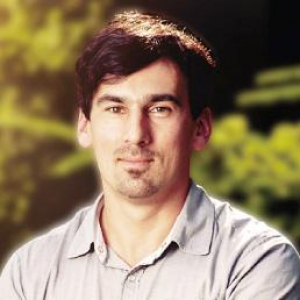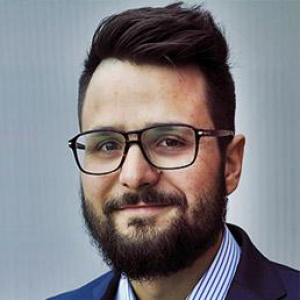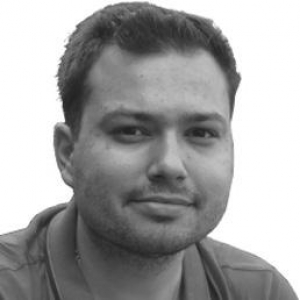
ongoing
Interpretative phenomenological analysis of depersonalization and derealization statesin clinical and nonclinical groups

principal investigator / project leader
Psychologist, psychotherapist, specializes in cultural psychology, psychology of religion and thanatopsychology
Full bio project value: PLN 1,050,209
funding source: National Science Center
discipline: psychology
location: Katowice
duration: 2017 2018 2019 2020 2021 2022
Most people may experience altered states of consciousness, such as depersonalization or derealization. These phenomena involve feeling separated from one's own body and mind or experiencing the environment as unreal or dream-like. These states may result from physical exhaustion, using substances, trance techniques or be the aftermath of traumatic events. Clinicians must be able to differentiate depersonalization and derealization in healthy people from the pathological forms of these episodes. Researchers from SWPS University study these complex phenomena to help healthcare professionals recognize the different forms of depersonalization and derealization to understand them in relation to various clinical presentations.
RESEARCH PROJECT
Interpretative phenomenological analysis
of Depersonalization and Derealization States in Clinical and Nonclinical Groups
Research Unit

Grant AmountPLN 1 050 209
Funding Source

Duration of Research Project: April 2018 – April 2022
Most people may experience altered states of consciousness, such as depersonalization or derealization. These phenomena involve feeling separated from one's own body and mind or experiencing the environment as unreal or dream-like. These states may result from physical exhaustion, using substances, trance techniques or be the aftermath of traumatic events. Clinicians must be able to differentiate depersonalization and derealization in healthy people from the pathological forms of these episodes. Researchers from SWPS University study these complex phenomena to help healthcare professionals recognize the different forms of depersonalization and derealization to understand them in relation to various clinical presentations.
Project Outline
Objectives
Alterations in consciousness are common experiences in healthy individuals as well as in patients with various mental disorders. Depersonalization (a sense of detachment from one’s mind or body) and derealization (experiencing the outside world as dream-like or unreal) can have different intensity and appear in different situations, for example during meditation, religious practices or during intense workout.
These states can also be a natural reaction to a traumatic experience, when the mind separates from the overwhelming events and feelings as a form of dealing with the trauma.
Some forms of depersonalization and derealization take on a chronic form, they are significantly dysfunctional, cause distress, and are regarded as pathological. However, there are no studies comparing both healthy and pathological states of depersonalization/derealization, or their relationship to trauma, and ways in which individuals experience them.
Research Methods and Application of Results
As part of this project, structured clinical interviews will be conducted with 40 healthy participants (people who practice extreme sports and members of charismatic prayer groups) and with 100 psychiatric patients suffering from a variety of mental disorders, to analyze and compare their personal experiences of depersonalization and derealization.
Such studies are necessary to help clinicians recognize and diagnose these different states of consciousness, which may indicate trauma-related disorders. As a consequence, it will lead to a better diagnosis and referral of patients to treatment.
Research Team

Tomalski, Radosław
First and last name
Radosław Tomalski
Academic degree or title
MD
Specialization
specjalista psychiatra, psychoterapeuta i superwizor Polskiego Towarzystwa Psychiatrycznego
MD Radosław Tomalskispecjalista psychiatra, psychoterapeuta i superwizor Polskiego Towarzystwa Psychiatrycznego

Bańbura, Anna
First and last name
Anna Bańbura
Academic degree or title
M.A.
M.A. Anna Bańburapsychologist

Nęcki, Szymon
First and last name
Szymon Nęcki
Academic degree or title
M.A.
Specialization
psycholog, asystent w projekcie badawczym „Analiza stanów depersonalizacji i derealizacji w grupach klinicznych i nieklinicznych” finansowanym przez NCN
M.A. Szymon Nęckipsycholog, asystent w projekcie badawczym „Analiza stanów depersonalizacji i derealizacji w grupach klinicznych i nieklinicznych” finansowanym przez NCN

Hełka, Anna
Role in the Faculty
{"funkcja-na-wydziale0":{"Funkcja":"Dean's Representative for the Quality of Education","\u0141\u0105cznik":"","Nazwa w mianowniku":"Faculty of Psychology in Katowice"}}
Role in the Department
{"funkcja-w-katedrze0":{"Funkcja":"","\u0141\u0105cznik":"","Nazwa w mianowniku":"Department of General, Social and Organizational Psychology"}}
Role in the Institute
{"funkcja-w-instytucie0":{"Funkcja":"","\u0141\u0105cznik":"","Nazwa w mianowniku":"Institute of Psychology"}}
Specialization
business psychologist
First and last name
Anna Hełka
Academic degree or title
Ph.D. / Assistant Professor
Email
This email address is being protected from spambots. You need JavaScript enabled to view it.
Institute
Institute of Psychology
Role in the Research Center
[]
Ph.D. / Assistant Professor Anna Hełkabusiness psychologist

Barłóg, Mateusz
First and last name
Mateusz Barłóg
Academic degree or title
Ph.D. / Research Assistant
Specialization
psychologist
Ph.D. / Research Assistant Mateusz Barłógpsychologist, research assistant